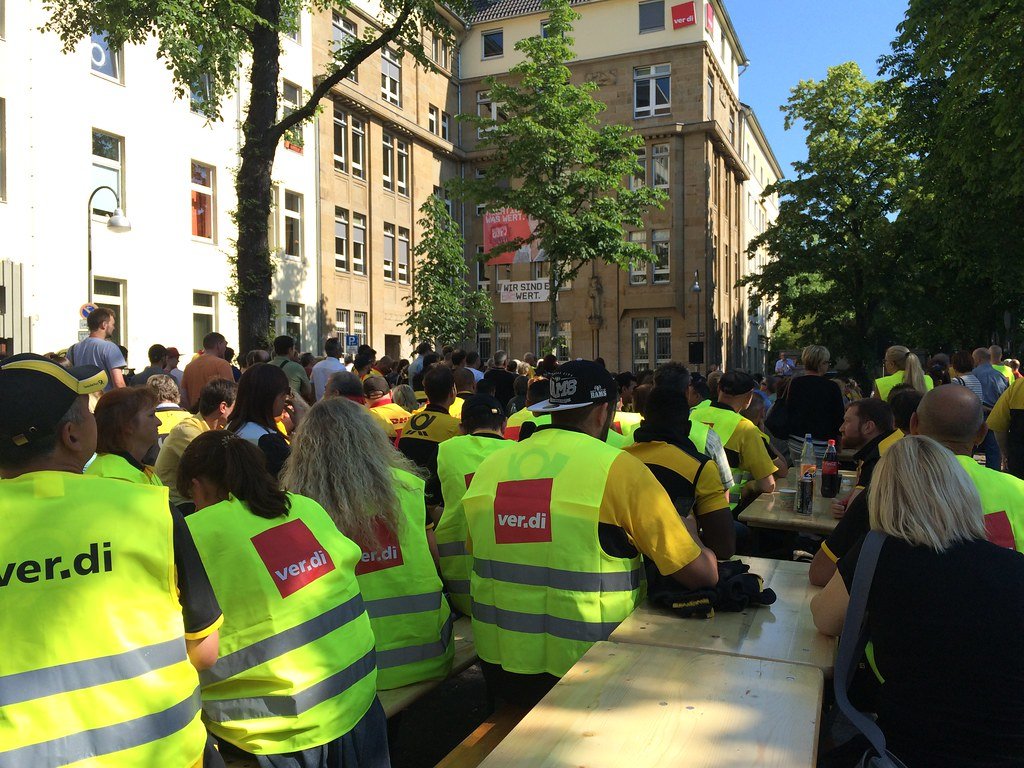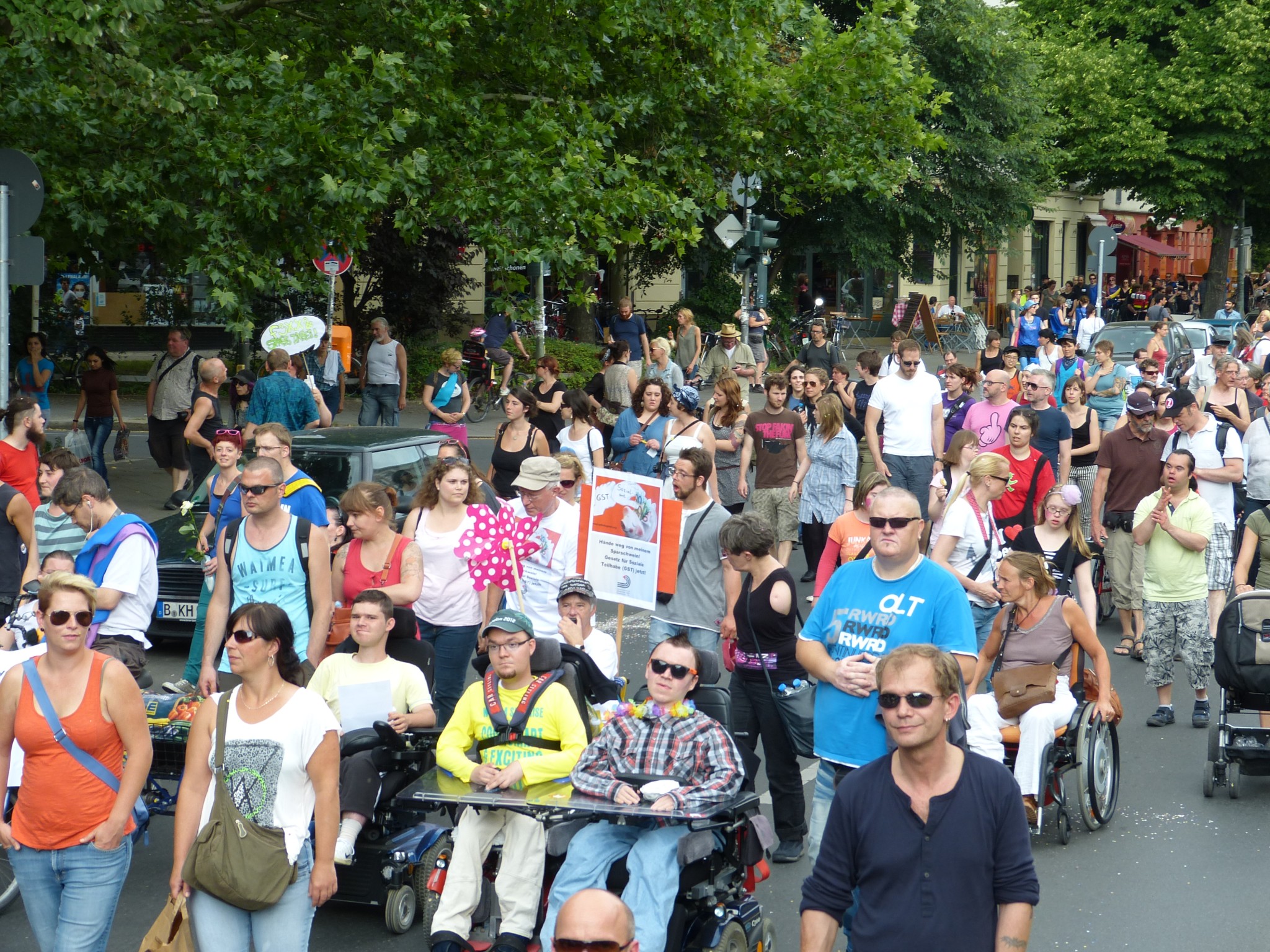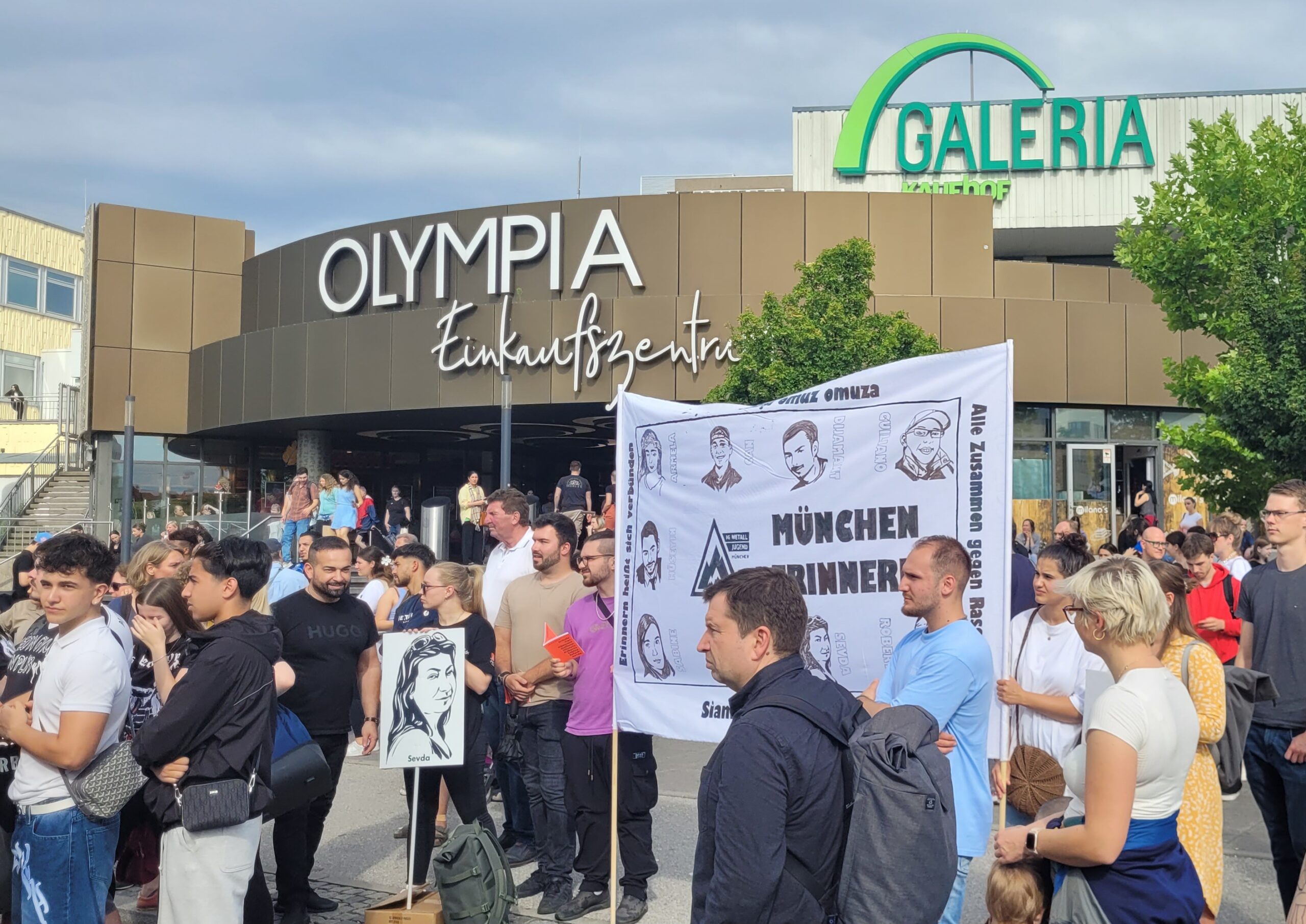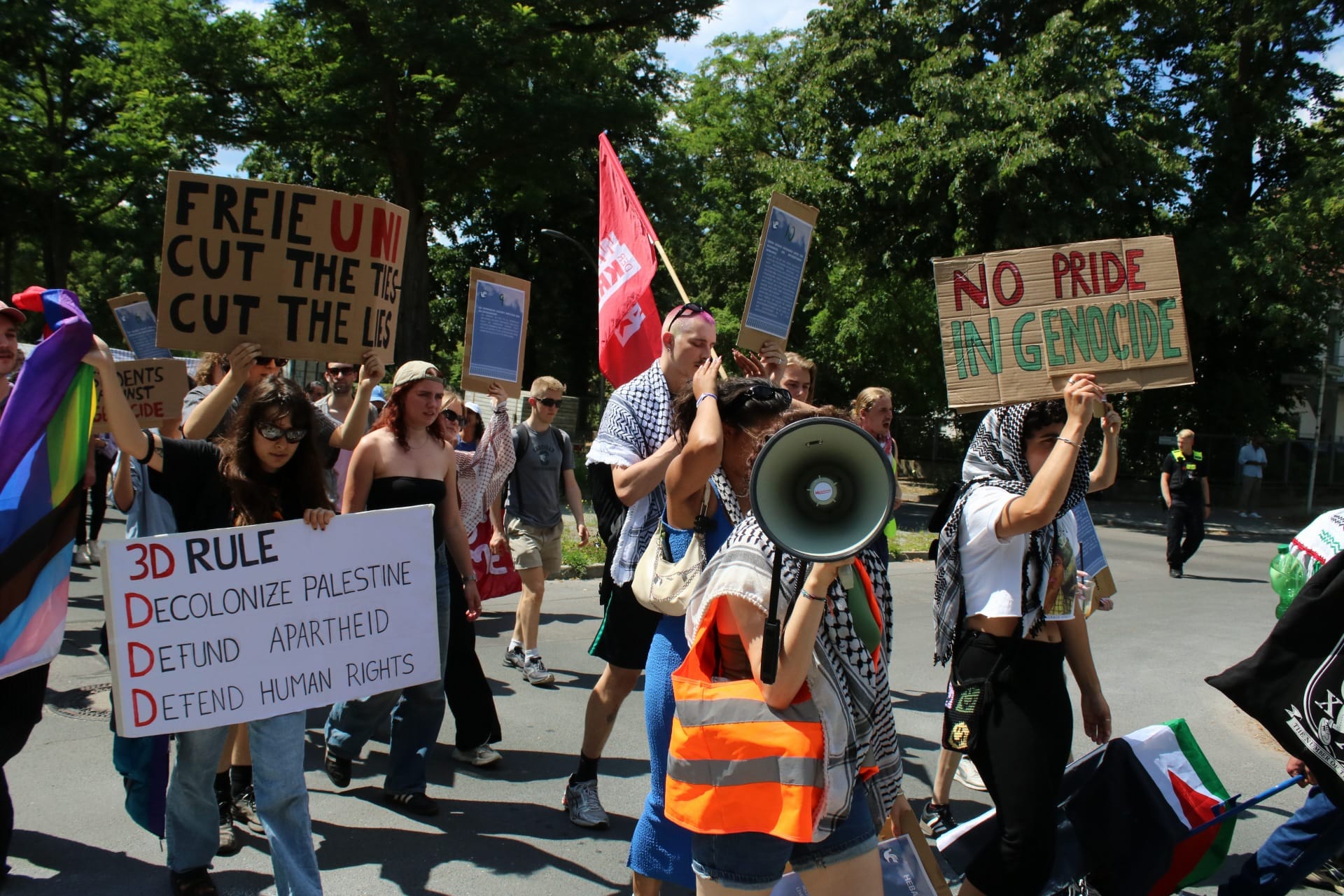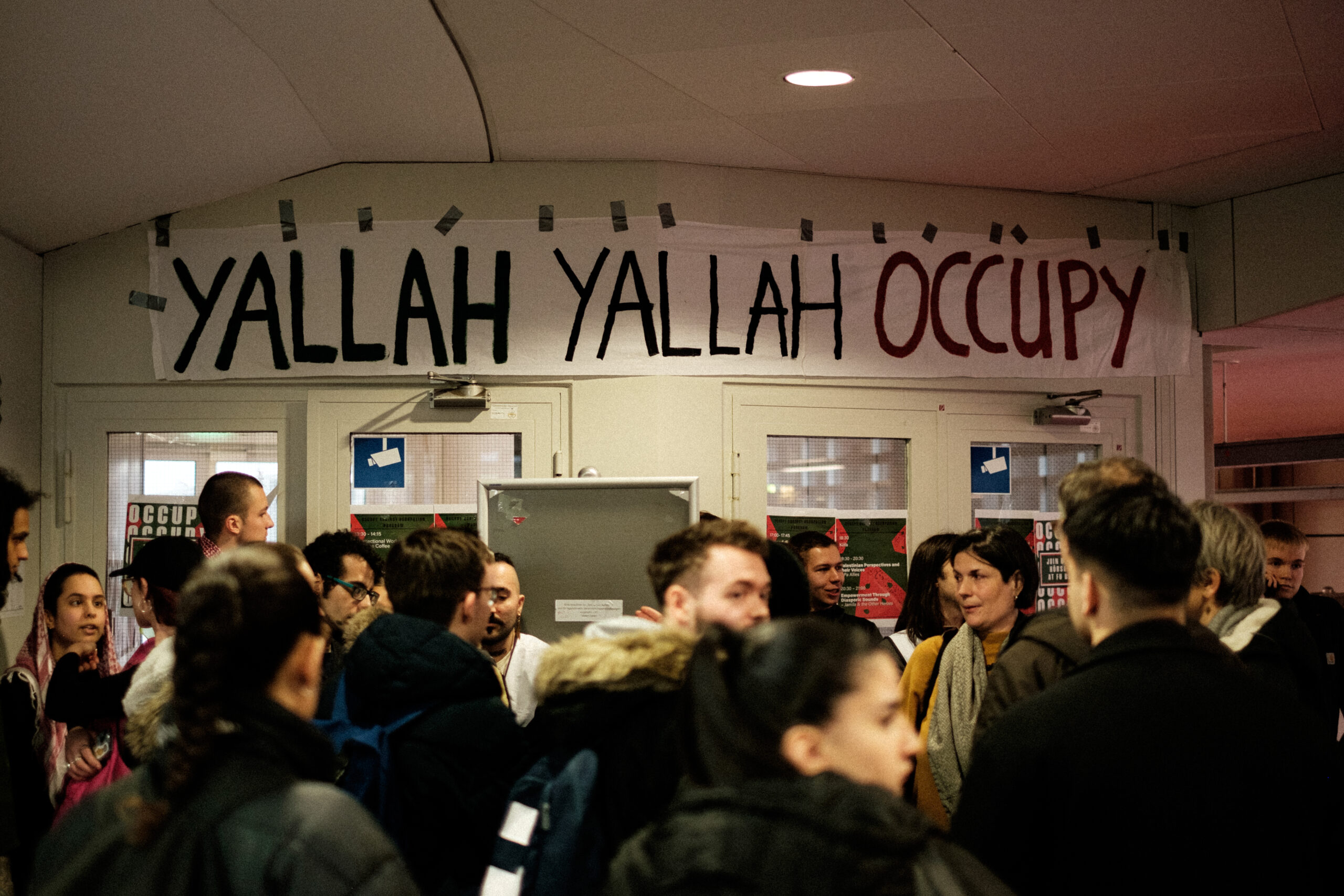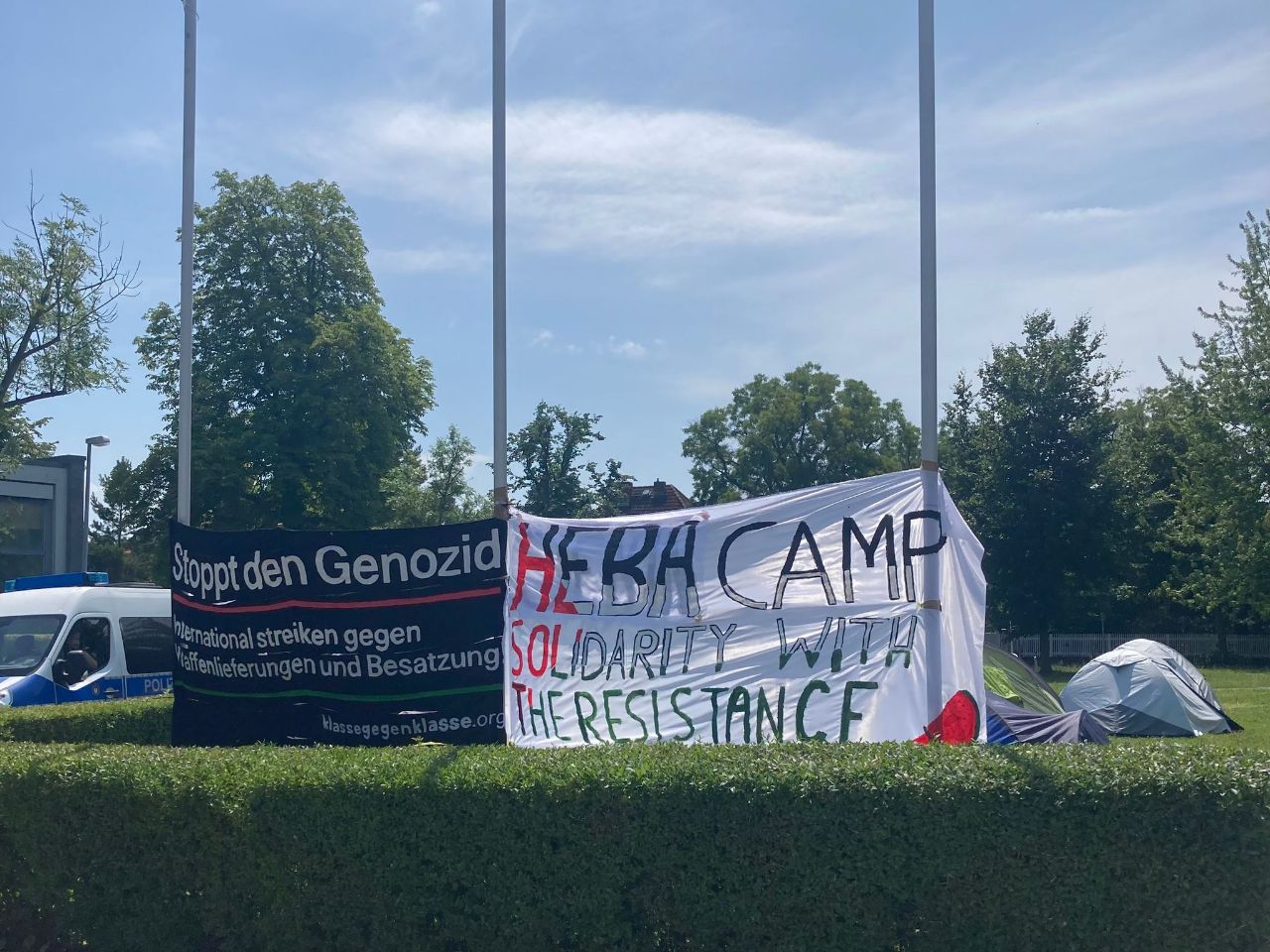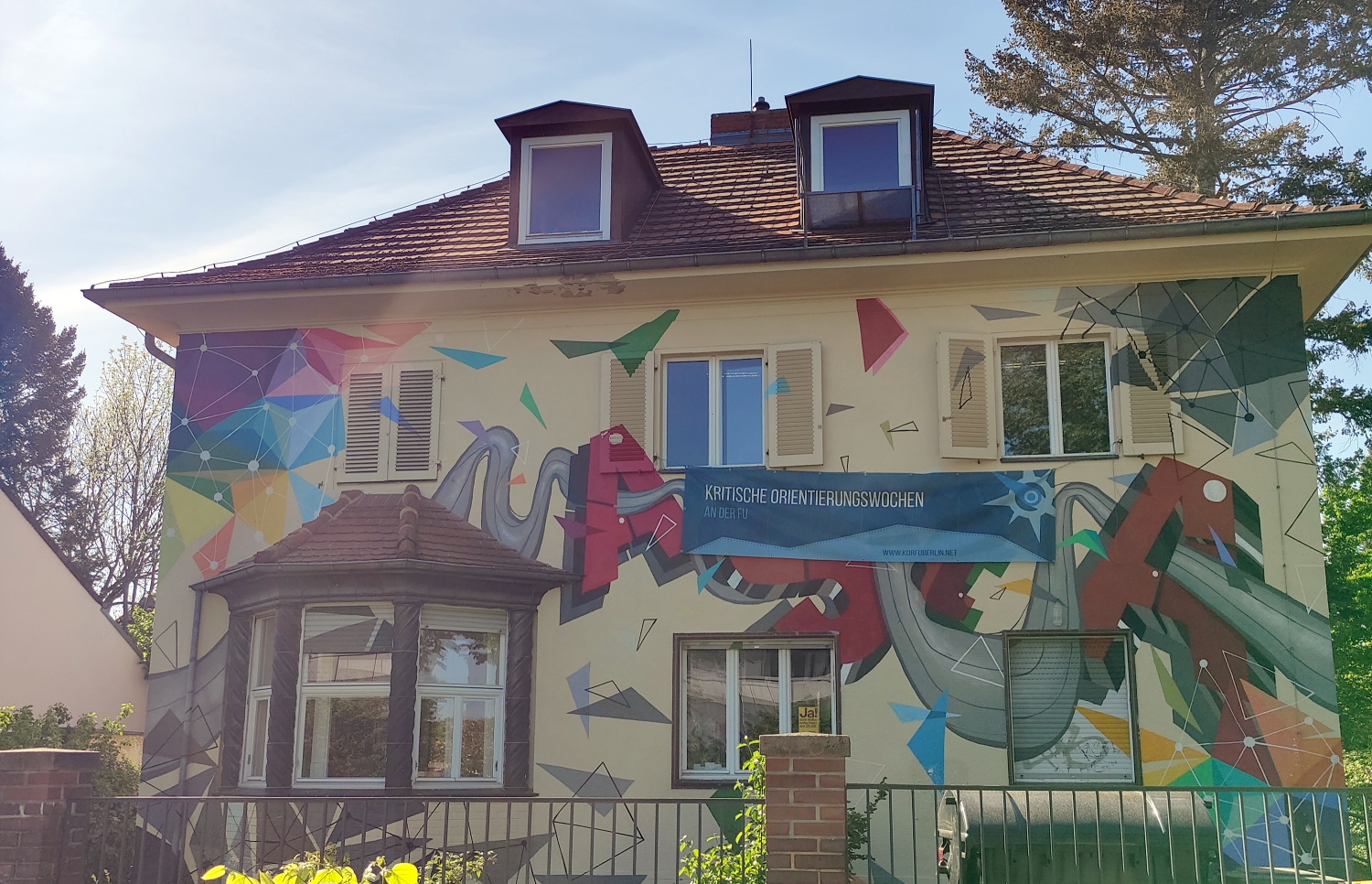Berlin Anticolonial Month – Echo the voices against Germany’s imperialism
The Anticolonial Month in Berlin started with a two day Forum on the 5th and 6th of October and concludes this friday, 15th of November on the aniversary of the Berlin Kongo Conference. Berlin-based journalist and activist Eleonora Roldán Mendívil spoke with Helo Yoshioka and Mugo Muna about the Anticolonial Month, about racism, anti-racism and its connection to an internationalist class struggle.
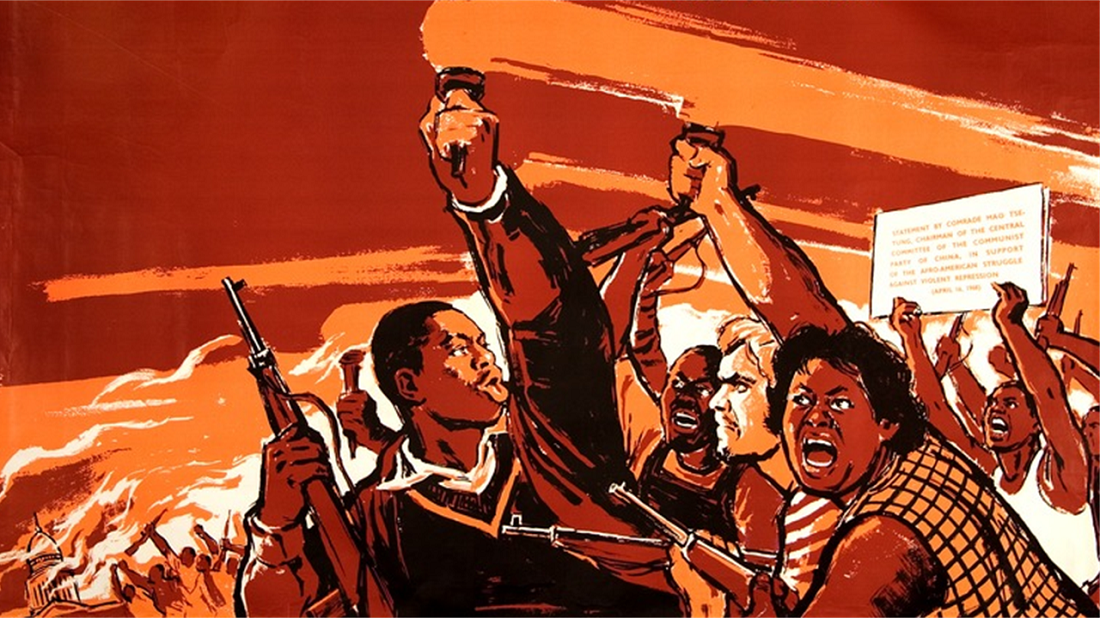
Picture: www.redvoice.news
Helo Yoshioka, 32, is a Brazilian migrant in Berlin and part of Quilombo Invisivel and Revista Amazonas from Brazil. Mugo Muna, 29, is a Black activist and has been working as a data analyst for over two years in Berlin.
On Saturday October 12 an over 3000 people strong Anti-colonial March took place at the heart of Berlin. You are part of the organizers of the Anti-colonial Month, which the March was a part of. Tell us a bit about who is organizing all of this and why?
Mugo Muna (MM): An organizational group of primarily migrant and diasporic groups and activists is behind the conceptualization and execution of the Anti-colonial Month. In practice, there was a feeling that certain conversations were not happening here in Berlin. So some people decided that if no one will make the space for conversations about the legacy and continuation of colonialism that we all feel and live with everyday, then we will do it ourselves. And that’s how things started. With time more activists and also non-migrant groups joined with the perspective of working together for organizing this month.
On the website you speak of linking the struggles of (formally) colonized peoples in the Global South with migrant and disporic people in the Global North. What are the links of anti-colonial struggles and struggles against racism?
Helo Yoshioka (HY): Even though racism is way older than capitalism, there’s no doubt that colonialism and capitalism expanded it and turned it into a globalized brutal structure of exploitation and oppression. The logic behind the overcrowded prisons and state violence that kills black and indigenous people everyday in Brazil is the same behind the criminalization of the Palestinian movements here and behind the refugees camp and police violence against refugees all over the world. Our struggle must aim to destroy the dynamic in which only a few people are entitled to have a family, a home, food, water, education and health while others are condemned to starvation, torture and murder.
MM: Within the Kenyan context, racism was integral to the process of domination. In order to justify killing and subjugating all these people, the British had to have some way to say how we were less than human and deserving of conquest. And these myths about Black people continue to this day and continue to be used as justification for unequal treatment whether between Kenya and other predominantly white nation states or between individuals and a world that thinks whiteness is a default. There is literally no country in the world where it is better to have dark skin than light skin. So fighting structural racism is attacking one of the foundational excuses in the brutalization of others.
From October 5th to October 6th two days of an Anti-colonial Forum took place. On October 26st you organized the third Forum day. During these three days over 400 activists attended panels and workshops, which were all linked to colonialism, imperialism and resistance against it today. You two were part of organizing a panel on racism and anti-racism, as well as a three-hour workshop on the same topic. What are the most important insights from this experience for you?
HY: To me, it was a precious experience to expand my perspective on racism both globally and through time. Racism manifests itself in very different ways depending on the subject and the space, but we can’t let the differences the dominant class build between us, separate us. That was, to me, the greatest power of both the panel and the workshop: the fact that we were able to build a space where different racialized people could explore this subject in a very sincere way and also discuss the role of white people both in maintaining and destroying this structure.
MM: Germany is so weird for me. There are ways that I think about racism that work in the US and Kenya, but don’t seem to work here. In other contexts, I’m used to conversations on racism being structured around the historical injustices and data on how those continue to affect the lives of the formerly colonized or racially oppressed by laws. The lack of government aggregated data on race in Germany makes the conversation so much more abstract here in Berlin. Because you can feel the structural inequality in the city, but I can’t point to any specific government statistics to nail it down. Also having not grown up here, it is interesting to note the history that is taught, like the holocaust under the Nazi regime, and the others that are ignored, like the genocide in Namibia. So for me it was just instructive to get a better feeling for the ways that structural racism manifests in this specific historical and geographical context.
What is the role of class struggle for a movement fighting against any form of racism?
HY: These two struggles are tied as race is just an excuse to exploit a group of people in benefit of another one. We know, from previous experiences, like in the USA and South Africa, that having Black and Brown people in power is not the solution to end racism because racism is completely tied to the capitalist system. It’s true that ending capitalism doesn’t necessarily end racism, but there’s no way to end racism without ending capitalism. And fighting capitalism in an anti-racist way is our only option to build cross-color line worker’s solidarity and unity.
MM: I think it is tough. I want to say that if we all realize that we are under the heel of bosses then we are stronger. But one of the troubling aspects of being in the working class and trying to survive is seeing how easily we can blame our problems at other people just trying to survive and not on the bosses holding us down. When someone tells me that I look like a drug dealer at work, it makes me less inclined to want to build and fight with that fellow worker. But in order to enact change we can’t do it alone. I think the class element is crucial because there are only so many Black data analysts that I can work together with but many more full time and part time workers who I can relate to in terms of how dumb and how brutal our bosses are. I just wish people would say less dumb, racist shit – that would be a great start.
Both of you have ties to communities in the Global South and the Global North. In your view, what kind of internationalism do we need today?
HY: I believe that we need to debate and expose the relationship of exploitation that exists between countries in order to have a real struggle towards a better future. I see that a lot of people here are concerned about the environmental struggle, for example, but we won’t be able to find a solution unless we understand who’s profiting from the destruction of the Global South. The dominant class is global, there are no boundaries to the companies that are exploiting people and destroying nature. The only way we can be strong enough to beat them is if we can support each other and never lose focus on who is the enemy – and that is global capitalism, not white people or people in the Global North.
MM: It was repeated throughout the forum that capital is organized, and we also have to be just as organized and deliberate to dismantle these structures and ways of domination. One of the things I loved about the forum was how attentive people were to language. To making sure that everyone was included in the discussion. That unity. That attention to other people’s needs and making space for them to be part of the discussion and decisions is the type of internationalism that leads to true collaboration and unity.
As migrant activists in Berlin, what do you feel is needed for migrant political subjects to be able to articulate themselves and organically form part of the political Left of this country?
HY: I feel we need to have concrete political proposals that can connect the struggles here and in the Global South. We are in the heart of global capitalism and I believe we should unite both migrants and non-migrants to echo the voices from all over the world against Germany’s imperialist policies and the companies here that profit from that. It’s not only a problem for migrants and the Global South, it’s everyone’s problems, everyone’s future.
MM: From what I understood from speaking to Germans, the Left here is heavily concerned with combating fascism or rose as a counter to fascists. But my primary concern on a day to day basis is not fascists, but my perilous position as an immigrant that needs to show how I am „contributing to German society“ or I have to leave this country. My visa anxiety which is connected to my wage labor anxiety can be exacerbated by fascist tendencies but is not dependent on it. I want to see more concern for migrant labor, whether it is from Eastern Europe, Northern Africa or other places in the Global South. So seeing a concern for wage labor conditions that are not dependent on having an „Anmeldung“ [registration of apartment] or a German passport would be encouraging and let me know people want to build a class struggle. In the end it is only class struggle, which can be a sustainable antidote to fascism anyway.
